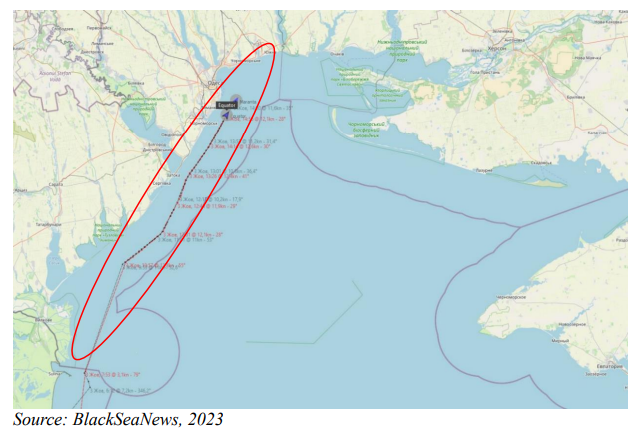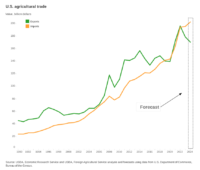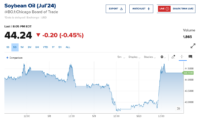Bloomberg's Clarice Couto reported this past Friday that "a surprising tax change in agriculture powerhouse Brazil has the potential to make soy grown in the world’s largest bean exporter less…
Ukraine Walked Away From New Black Sea Grain Deal
Reuters’ Guy Faulconbridge and Tuvan Gumrukcu reported Monday that “Russia and Ukraine negotiated for two months with Turkey on a deal to ensure the safety of shipping in the Black Sea and reached agreement on a text that was to be announced by Ankara but Kyiv suddenly pulled out, four people familiar with the matter told Reuters.”
“A deal was reached in March ‘to ensure the safety of merchant shipping in the Black Sea’, and though Ukraine did not want to sign it formally, Kyiv gave its assent for Turkish President Tayyip Erdogan to announce it on March 30, the day before critical regional elections, the sources said,” Faulconbridge and Gumrukcu reported. “‘At the very last minute, Ukraine suddenly pulled out and the deal was scuttled,’ said one of the sources.”
“It was not immediately clear why Ukraine pulled out. The people who spoke to Reuters said they did not know what had prompted Kyiv’s decision,” Faulconbridge and Gumrukcu reported. “Ukrainian President Volodymyr Zelenskiy said in February that without new U.S. military aid, Ukraine would not be able to defend a Black Sea shipping corridor hugging its western Black Sea coast near Romania and Bulgaria.”
Current Shipping Corridor
The United States Department of Agriculture’s Foreign Agricultural Service reported in January that “after Russia terminated the (Black Sea Grain Initiative) in July 2023, Ukraine initiated the movement of civilian vessels through a new Ukrainian corridor to Chornomorsk, Odesa, and Pivdennyi ports in October 2023. According to press reports, vessels using the corridor follow neighboring countries’ territorial waters to reach the Bosphorus. They enter Ukrainian territorial waters from Romanian waters near the mouth of the Danube River. Afterward, they follow the specified route alongside coasts to a respective seaport.”

“Establishing this new corridor to resume Black Sea exports has boosted Ukraine’s exports of grains and agricultural products, especially corn,” the USDA FAS reported. “The total volume of grain exports (wheat, corn, and barley) soared from around 2 MMT in September 2023 to 5.2 MMT in December 2023.”
Then in an April report, the USDA FAS reported that it “forecasts overall (Ukraine) oilseed exports to expand in marketing year 2024/25, due to larger soybean and rapeseed shipments” that are happening at least in part due to the current Black Sea shipping corridor.
At the end of February, however, Reuters’ Michelle Nichols reported that “Ukraine’s President Volodymyr Zelenskiy said on Monday that without new U.S. military aid his country would be unable to defend a Black Sea shipping corridor that has allowed Kyiv to export millions of tons of grain to global markets.”
Canceled Deal Details
Faulconbridge and Gumrukcu reported that the deal that almost occurred “said that Turkey ‘as part of its mediation efforts’ had reached agreements with Ukraine and Russia ‘on ensuring free and safe navigation of merchant vessels in the Black Sea’ in compliance with the Montreux Convention of the Regime of the Straits.”
“That 1936 deal gives Turkey control over the Bosphorus and Dardanelles and the power to regulate transit of naval warships,” Faulconbridge and Gumrukcu reported. “It also guarantees the free passage of civilian vessels in peacetime and restricts the passage of ships not belonging to Black Sea countries.”
“Under the deal almost announced on March 30, both Moscow and Kyiv would have offered security guarantees to merchant vessels in the Black Sea, committing not to strike or to seize or search them as long as they were either empty or had declared a non-military cargo,” Faulconbridge and Gumrukcu reported. “‘These guarantees do not apply to warships, civilian vessels carrying military goods (with the exception of maritime transportation agreed upon by the Parties within the framework of international missions),’ the draft agreement said.”
“Russia, Ukraine and Turkey declined to comment,” Faulconbridge and Gumrukcu reported.







